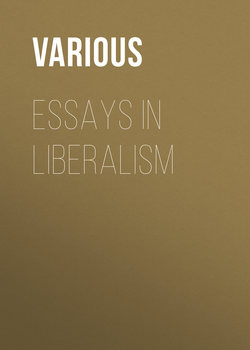Читать книгу Essays in Liberalism - Various - Страница 18
INTERNATIONAL DISARMAMENT
By Major-General Sir Frederick Maurice, K.C.M.G., C.B
A Group of New Armies
ОглавлениеWell, how do we stand in regard to that to-day? We stand to-day in the position that the armaments of Germany, Austria, Hungary, Bulgaria, have all been compulsorily drastically reduced, but in their place you have a whole group of new armies. You have armies to-day which did not exist before the war, in Finland, Esthonia, Poland, Lithuania, and Czecho-Slovakia, and the sum total is that at this moment there are more armed men in time of peace in Europe than in 1913. Is there no danger that this machine will mould the minds of some other peoples, just as the German machine moulded the minds of the Germans? This is the position as regards the peace establishments of Europe to-day in their relation to the future peace of the world. What about the economic position? I have mentioned that certain Powers have had their forces drastically reduced, and that has brought with it a drastic reduction of expenditure, but I have before me the naval, military, and air force estimates of the eight principal Powers in Europe, leaving out Germany, Austria, and Bulgaria, whose forces have been compulsorily reduced.
At the economic conference of financiers in Brussels in 1920 it was mentioned with horror that 20 per cent. of the income of Europe was then being devoted to arms. I find that to-day 25 per cent. of the total income of these eight Powers is devoted to arms. I find, further, that of these eight Powers who have budgeted for a smaller service, only one—Yugo-Slavia—has managed to balance her budget, and the others have large deficits which are many times covered by their expenditure on arms. And this is going on at a time when all these eight nations are taxed almost up to their limit, when the whole of their industries are suffering in consequence, and when the danger of bankruptcy, which horrified the financiers in 1920, is even more imminent.
That being the case, what has been done in the last few years to remedy this matter, and why is more not being done? As you all know, this question is in the forefront of the programme of the League of Nations. And the League began to deal with it at once. Lord Robert Cecil will agree with me that the framers of the Covenant, of which he is one of the chief, could not foresee everything, and they did not foresee at the time the Covenant was framed, that machinery would be required to deal with this extraordinarily complex question of armaments. They created an organisation then called a Permanent Military Command, still in existence, to advise the Council of the League on all military matters. But when these gentlemen got to work upon such questions as reduction of armaments, they at once found themselves dealing with matters entirely beyond their competence, because into this problem enter problems of high politics and finance, and a thousand other questions of which soldiers, sailors, and airmen know nothing whatever.
